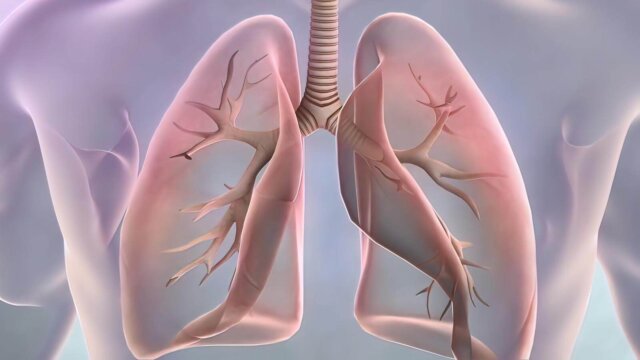FTC disclaimer: This post may contains affiliate links and we will be compensated if you click on a link and make a purchase.
Experts now believe that chronic stress can be a factor in any disease. In addition, it has been observed that chronic stress or long-term stress can weaken our immune system.
According to research, chronic stress or long-term stress may result in a stress-related immune system, resulting in stress-related disease.
How Chronic Stress Alters Immune Function?
Stress is interpreted by the body as a danger signal and results in the “fight or flight” response, affecting both the brain and immune system.
Your adrenal glands release cortisol, allowing your body to defend itself through heightened awareness, increased heart rate, and increased blood flow to muscles.
Cortisol also has the ability to alter the functioning of our immune system.
When Cortisol is released, it will produce white blood cells and cause them to migrate to particular areas of the body during injury, infection, and stress.
However, during periods of chronic stress, continued activation of the immune system persists like the “boy who cried wolf,” in that the danger signals are ignored because of their persistence.
Many research and studies have supported the fact that psychological stress has been linked to dysregulation of the human immune system and the risk factor.
Mobilization of Immune Cells Produces Free Radicals
The white blood cells, also called leukocytes or leucocytes, are the cells of our immune system produced when our brain receives messages from chemical messengers called “cytokines.”
The more white blood cells your body activates, the more free radicals they produce.
These free radicals are among your immune system’s most powerful weapons during periods of emotional stress and disease, in response to injury, and even in the aging process itself.
What are free radicals and their role in our immune system?
Free radicals attack and destroy invaders by interfering with their cellular machinery. It acts as pellets of poison that literally dissolve or breaking down the genetic material of bacteria, toxins, and viruses.
In normal body functioning, the immune system can identify foreign invaders such as viruses and bacteria by accurately “reading” molecular codes found on cell surfaces.
These molecular codes of cells found in viruses and bacteria are just like flags of different armies. Moreover, the immune system will not attack cells if it “reads” a flag belonging to the body’s own host army.
Unfortunately, however, the over-production of free radicals can interfere with the biological components of our healthy cells, just as they destroy invaders. This leads to many diseases.
Immune system and nitric oxide
When the immune system’s cytokines activate macrophages (the white blood cells capable of gobbling up invading viruses and bacteria), the macrophages produce large amounts of nitric oxide in the course of battle.
Nitric oxide is a colorless gas that is produced by different cells in our body. Therefore, its production depends on the body situation, which can be very good or very bad.
Chronic Stress Alters Cardiovascular Function
Recent studies have concluded that chronic stress will impact cardiovascular functioning and give rise to cardiovascular diseases.
When we are under stress, our adrenaline starts to rise, which causes our blood vessels to constrict. As a result, it will increase our blood pressure and activate our blood platelets —prepared to clump together to form a clot.
This “fight or flight response” is suitable in short-term dangerous situations. Moreover, at the same time, blood platelets are prepared for an injury to quickly form a blood clot and more efficiently prevent blood loss.
But, in case of chronic stress, it causes constant constriction of blood vessels. Also, it will continuously prepare “sticky” blood platelets to form a clot.
These “sticky” blood platelets are classic risk factors for heart disease and stroke.
If some blood platelets stick together and form a clot, the vessel may be completely clogged, and the surrounding tissue is deprived of oxygen and nutrients. This process gives rise to Atherosclerosis – the stage where plaque builds up inside your arteries.
Moreover, when the blood vessels are constricted, there would be less blood flow to flow through, and atherosclerotic plaque may further reduce the space for blood flow.
This is how heart attacks and strokes develop.
The role of Nitric Oxide in the Immune system
Nitric oxide function is to controls the muscles surrounding the blood vessels and causes them to relax. Additionally, at the same time, nitric oxide causes blood platelets to return to their normal, smooth conditions.
Nitric oxide is a colorless gas produced by our body cells in different situations, which can be very good or bad.
According to research studies, Nitric oxide plays a significant and major role in the body.
- Nitric oxide plays the role of an important signaling molecule that turns genes on and off.
- It regulates blood circulation and normalizes blood flow by controlling the muscular tone of blood vessels.
- Nitric oxide helps modulate communication between brain cells and is also instrumental in helping us concentrate, learn new information, and helps in maintaining memory.
- When nitric oxide is produced by immune cells, it fights against infection, kills tumor cells, and promotes wound healing.
- Nitric oxide plays a crucial role in perceiving pleasure and pain and also helps in transforming sexual excitement into penile erections.
- Nitric oxide also aids in the digestion of food by controlling gastric flow and mixing.
But nitric oxide can be very destructive under certain circumstances:For example,
- Nitric oxide has the ability to restrict blood flow in certain situations.
- When nitric oxide is produced in excess by immune cells, it may trigger chronic inflammation, which can be the cause arthritis, colitis, inflammatory bowel disease, and possibly cancer.
- Excess production of Nitric oxide may also promote more free radicals.
- Nitric oxide can also hamper brain functioning, which can lead to memory loss and brain aging.
The nitric oxide would be more dangerous and troublesome when it encounters the superoxide free radical and becomes peroxynitrite.
As a result, it will destroy antioxidants like glutathione, vitamin E, and common flavonoids and damages proteins in the body.
How to improve your Immune system during stress?
During any challenge to your immune system—because of disease, infections, toxic exposure, stress, or aging—you need the extra antioxidant to help scavenge the free radicals naturally produced by the immune system’s cells during warfare.
When your immune system works better, your joints hurt less, and your blood flows better.
Vitamins C and E are key players in the body’s protective antioxidant army.
Antioxidants fight corrosive and destructive forces that constantly work to break down our bodies.
Overwhelming scientific evidence demonstrates that those of us who eat a diet rich in antioxidants and take antioxidant supplements will live longer and healthier lives.
Working as a defensive army, antioxidants work together in the body to maintain our health and vigor by protecting us from damage caused by rampaging free radicals, which, like terrorists, injure healthy cells and tissues.
Conclusion
Please don’t underestimate the threat that free radicals pose to our health.
Contemporary scientists now believe that free radicals are causal factors in nearly every known disease, from heart disease to arthritis to Parkinson’s to Alzheimer’s to ALS to multiple sclerosis to cataracts to the aging process itself.








